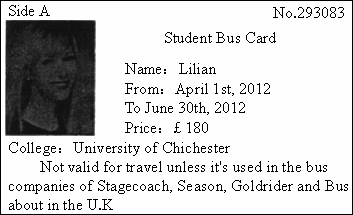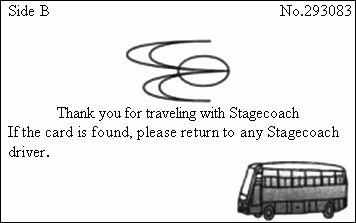网址:http://m.1010jiajiao.com/timu3_id_2440334[举报]
| |||||||||||||||||||||||||||||||||||||||||||||||||||||||||||||||||||||||||
| |||||||||||||||||||||||||||||||||||||||||||||||||||||||||||||||||||||||||||||||||||||||||||||||||||||||||||||||||||||||||||||||||||||||||||||||
| |||||||||||||||||||||||||||||||||||||||||||||||||||||||||||
| |||||||||||||||||||||||||||||||||||||||||||||||||||||||||||||||||||||||||
America is a mobile society. Friendships between Americans can be close and real, yet disappear soon. They don’t feel hurt. If the same two people meet again, even years later, they pick up the friendship. This can be quite difficult for us Chinese to understand. Friendships between us develop more slowly but may become lifelong (终身的)feelings, extending (延伸) deeply into both families.
There is another difficult point for us to understand. Although Americans treat friends warmly in their personal everyday lives, they don't show their politeness to them if it requires a great deal of time. But in China, we are usually generous with our time. We, as hosts, will appear at an airport even in the middle of the night to meet a friend. We may take a day off from our work to act as guides to our friends: It is opposite in America, Americans can not manage the time to do a great deal with a visitor outside their daily plans. They will probably expect the visitors to get themselves from the airport to the hotels. And they expect the visitors will phone them from there. Once the visitors arrive at their homes, the welcome will be full, warm and real.
For Americans, it is often considered more friendly to invite a friend to their homes than to restaurants, except for business matters. Americans are ready to receive us foreigners at their homes, share their holidays, and their home life. So accept their hospitality (好客) at home and enjoy your visit in America!
【小题1】The underlined phrase “pick up”in Paragraph 1 may mean“_____”.
| A.keep out | B.give up |
| C.pay no attention to | D.continue |
| A.Treating friends at home. |
| B.Taking days off to be with friends. |
| C.Meeting friends at the airport at mid night. |
| D.Sharing everything they have. |
| A.Americans are always generous with their time. |
| B.Americans don't feel hurt if their friendships disappear soon. |
| C.Chinese friendships develop more slowly but will never disappear. |
| D.Chinese friendships are more sincere than American friendships. |
| A.American students |
| B.Chinese students |
| C.Chinese visitors to America |
| D.American visitors to China |
| A.An introduction of friendships. |
| B.An advertisement of mobiles. |
| C.Friendships between Chinese. |
| D.The ways Americans treat friends. |



